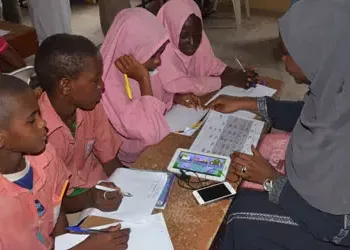Continued from last week…
So, if we want a seamless transition, we should think about Tinubu. For one, he will have no excuses. He cannot sit and complain about how Buhari has ruined the economy or anything of that sort – even though in retrospect yes, the Buhari government had a bad start, took some very terrible decisions, but also laid the grounds for success for its successor. Tinubu cannot also try to portray Buhari in a bad light since they belong to the same party, and he is alleged to be one of Buhari’s chief sponsors. He has also openly accepted to take on the assets and liabilities of Buhari’s government, which is the honorable thing to do. If what we want is a visionary and leader of men and women, someone with enough clout to get anyone into his government to add value, then we need not waste time with most of the other candidates who will come in and whine, and act confused. From what I’ve seen about what other people around the world are doing, Nigeria needs to move super-fast. Tinubu has committed to a 10 per cent year-on-year GDP growth, which is remarkable. With all the huff and puff of most of the other candidates, none has been able to step out with such brave visioning, and a commitment to hardwork. That is what we’re talking about! Only Tinubu has shown strong, out-of-the-box thinking, not a regurgitation of the dictates of multilateral bodies.
What The Manifesto Says
I should round up with some remarkable snippets from the manifesto. The chief one for me is the commitment to 10 per cent GDP growth. As a fact, I know that a Tinubu government can do better than that and from what I’ve seen so far, Tinubu will astound this country with his team. And there will be no gloating. Buhari tried his best, but asides from initial missteps in the beginning, he was plagued by ill-luck (crude price crashes and the terrible covid-19). COVID-19 was especially a devastating phenomenon, which has seen the backs of many governments around the world. For Nigeria, it resulted in a large exposure of the federal government to the Central Bank. We just had to survive. And the government did the needful. We hope that we don’t get another devastating – even if somehow admixed with fear and some contrivance – phenomenon like COVID. In fact, the entire world will resist. So, the next few years for Nigeria should be able to work, work, work, productivity, innovation and reorganisation.
Of course, Tinubu has to be careful about fifth columnists. It is not everyone carrying a Nigerian passport that wants to see the nation emerge into any degree of greatness. Many Nigerians have over the years deliberately gone around damaging the name and goodwill of the country so long as they can get some pecuniary advantage. There are also many in government who are agents of foreign countries and intelligence services, whose main roles are ton help maximise advantage to their paying countries and minimise or even zero out advantage or gain to Nigeria. Government is often a terrible affair. Tinubu knows this already but will need help, for all of our sakes. We must not assume that we are all gearing to make Nigeria great. Some of the people who will lose the elections have also vowed to cause trouble and some will ensure they make some parts of Nigeria ungovernable. It is what it is.
But based on the manifesto, there is hope. One serious critic wrote:
I dare say that the Renewed Hope Manifesto of Bola Ahmed Tinubu, is an A+ comprehensive political statement of intent and roadmap. I struggle to isolate a single item in it that can be executed by a government led and staffed by people lacking in or disdainful of commitment to excellence, diligence and meritocracy . If we are interested in the future of our grandchildren in Nigeria , all of us must read, analyse and critique it before we cast our votes on 25th February , 2023. I think , at least, on this score other presidential aspirants must up their game . If 25 per cent of the content is implemented successfully in four years , we’d be having a different country than what we have now. The mind that came up with this masterpiece of a manifesto is worth some shi-shi .
Another serious critic, Kalu Aja, in a series of tweets had to eventually commend the thinking behind the manifesto, giving one confidence that much is achievable.
A famous, no-nonsense critic, and influential thought-leader Ademola Henry Adigun shared these critical but surprisingly encouraging remarks on his Facebook page:
“I have read the APC manifesto. A good read. Clear on deliverables. Good on managing the FX challenge. Great on growing the oil sector. Weak in addressing security.. more theoretical than practical. Great on simplicity and syntax. Not clear on tackling corruption.,
If APC wins, and implemented…there might be some gains for the economy.”
A sampling of provisions in the manifesto include:
- Creation of ABATTS (Anti-terrorist Battalions). Something akin to American SWATs but focused on this terrorist challenge which must be tackled. The Buhari government has made a dent in many places. The finishing touches must now be added.
- Mass employment of youths in security, environment, education and health sectors, while reorganising the public service for better efficiency (I reckon this means rationalising of the service by transferring many to where they will actually have work to do, not merely pushing files around). Our public service is largely not on ground, yet.
- Transfer of VIP protection to NSCDC. (I personally believe VIPs should pay officially into the security fund for this privilege. Good money).
- Better fiscal responsibility and a new revenue allocation formula to give states and local governments a higher cut.
- Refocus of budget away from only crude oil. (I believe this means that stronger revenue assumptions will be made – especially the contributions of our government owned enterprises and the non-oil sector). Also the manifesto states that deficit limits will be set but profound expenditure budgets will be drawn, that will drive the economy.
- De-dollarisation of economic base. Stoppage of the idea that without crude oil sales, government cannot spend. (part of our current challenge is the over-concentration on crude oil proceeds despite the volatility of that sector and its shrinking impact on our economy due to oil theft. I reckon that life is telling Nigeria to move on).
- Hiring millions of unemployed people to modernise (and maintain) infrastructure.
- Luxury taxes to reduce import dependency.
- Pursuit of a stronger and more stable exchange rate. (I think someone here realises the truism in Stalin and Thatcher’s statement – ‘to destroy a country, you first debauch its currency’).
- Limiting foreign currency debts by contracting such only for projects with good cash flows.
- Major and minor industrial hubs in each political zone
- Banks to engage in consumer loans or pay penalties to CBN.
- Review Land Use Act. Rationalise land conveyance process
- Increase cultivated arable land from 35 per cent to 65 per cent through massive land clearing.
- Commodity boards / commodity exchanges for the crops in which we are doing great- cocoa, cashew, sesame, soya, cassava, yam, palm oil, rubber, okra, etc.
- Storage and small processing facilities in farming areas to reduce/eliminate post-harvest losses.
- Universities and polytechnics to be centres of research to bring more power to rural areas through innovation.
- State governments to build metro services linking national rail lines.
- Embark on serious dredging of strategic inland waterways. This will further open up the transport sector but also reduce incidences of very bad flooding as is presently being witnessed.
- Reintroduce history, civics and indigenous languages to schools.
- Reposition student loans and institute a more cost-reflective tuition fee. Also establish Special Education Fund consisting of zero-coupon bonds. Private investors will help fund universities.
- Establishment of Media City and provision of specific infrastructure for entertainment industry.
- 20 per cent of political appointments for Nigerians below 40 years old. Plus at least 3 cabinet positions.
- Aim to increase women participation in governmental positions to 35 per cent.
- Cash transfers to poor families to be tied to the compulsory education of their children.
Like the critic opined, just a quarter of these and we will have altered something profoundly in Nigeria. Nigeria may be about to turn the corner if our luck holds for a bit. I believe strongly that we can achieve more than 50 per cent of the promises. Let us forgive ourselves in this country. There is time to resolve all grievances. We must recover our country together, and our lost image.





